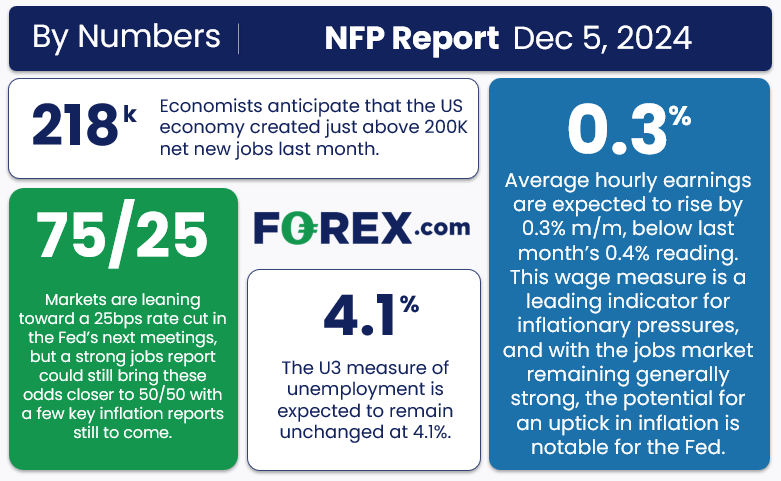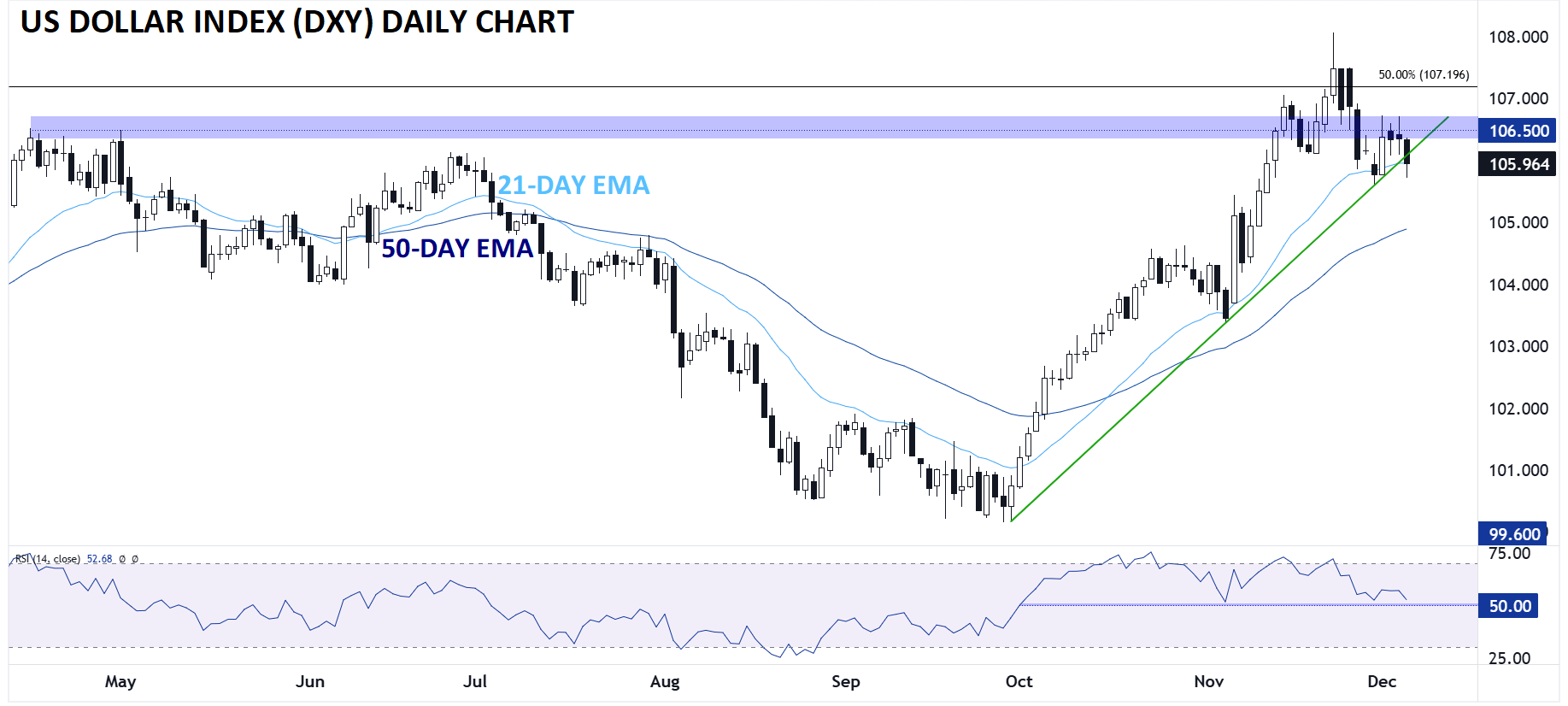NFP Preview: Could a Strong Jobs Report Put a December Fed Pause in Play?
2024.12.06 03:07
NFP Key Points
- report expectations: +218K jobs, +0.3% m/m earnings, unemployment at 4.1%
- The Fed is , but not certain, to cut interest rates by 25bps later this month, and a strong jobs report could reopen the door for close decision.
- The US Dollar Index () looks like it’s rolling over off the top of its 2-year range near 107.00.
When is the November NFP Report?
The November NFP report will be released on Friday, December 6, at 8:30 ET.
NFP Report Expectations
Traders and economists expect the NFP report to show that the US created 218K net new jobs, with average hourly earnings rising 0.3% m/m (3.9% y/y) and the U3 holding steady at 4.1%.
NFP Overview
The US jobs market suffered a setback last month with the worst NFP reading in nearly four years, with the Bureau of Labor Statistics (BLS) estimating that the US economy created just 12K net new jobs in October.
Thankfully heading into this month’s NFP reading, economists are feeling much more optimistic on the outlook for the labor market:
Source: StoneX
As the lower left box below suggests, traders still think the Fed is likely to cut interest rates by 25bps at its meeting in two weeks’ time, but it is far from a done deal yet. A stronger-than-anticipated jobs report this week, especially with a drop in the unemployment rate and a 0.4%+ m/m reading in average hourly earnings, could still leave the door open for a December pause.
In that scenario, traders will want to mark next week’s CPI (Wednesday) and PPI (Thursday) reports on their calendar as potentially major volatility catalysts heading into the FOMC meeting.
NFP Forecast
As regular readers know, we focus on four historically reliable leading indicators to help handicap each month’s NFP report:
- The ISM Manufacturing PMI Employment component rose to 48.1 from 44.4 last month.
- The ISM Services PMI Employment component dropped to 52.1 from 56.0 last month.
- The ADP Employment report showed 146K net new jobs, down from the downwardly-revised 184K reading last month.
- Finally, the 4-week moving average of initial unemployment claims fell to an historically strong 218K from 236K last month.
Weighing the data and our internal models, the leading indicators point to a roughly as-expected reading in this month’s NFP report, with headline job growth potentially coming in somewhere in the 180K-240K range, albeit with a big band of uncertainty given the current global backdrop.
Regardless, the month-to-month fluctuations in this report are notoriously difficult to predict, so we wouldn’t put too much stock into any forecasts (including ours). As always, the other aspects of the release, prominently including the closely-watched average hourly earnings figure which came in at 0.4% m/m in the most recent NFP report.
Potential NFP Market Reaction

As we outline below, the US dollar sits near the middle of its 1-month range after hitting a 2-year high last month. With an interest rate cut largely priced in at this point, the risks may be skewed slightly toward a bounce in the greenback if the jobs report revives the odds of a December pause, though any market moves might be limited as the Fed’s policy decision is more around when rather than if it will pause rate cuts in the near future.
US Dollar Technical Analysis – DXY Daily Chart
Source: TradingView, StoneX
The US Dollar Index (DXY) spiked to a 2+ year high near 108.00 last month before rolling over for and trading back near 106.00 as of writing. From a purely technical perspective, DXY is near the middle of its 1-month range but near the top of its 2-year range. With prices testing a longer-term resistance zone near 107.00 and entering the midst of a weak seasonal period, the technical bias may be tilted to the downside, muddying the potential bullish fundamental lean outlined above.
Ultimately, readers may expect a brief bout of volatility in the wake of the release as traders adjust to the new data, but the initial move may be relatively short-lived as they weigh the mixed near-term outlook and upcoming data.
Original Post







